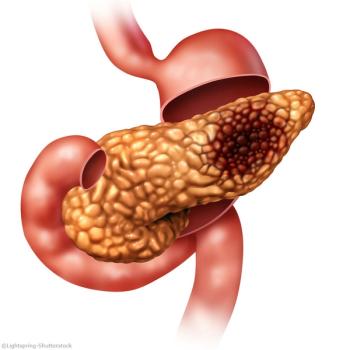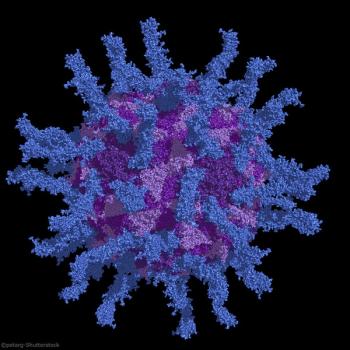
A team of Texas-based oncologists says their preclinical study results “demonstrate that IGF-1R and FOXC1 seem to positively regulate each other.”

Your AI-Trained Oncology Knowledge Connection!


A team of Texas-based oncologists says their preclinical study results “demonstrate that IGF-1R and FOXC1 seem to positively regulate each other.”

“Tumor cell–intrinsic factors shape the tumor immune microenvironment and influence the outcome of immunotherapy,” the lead study author concluded.

FDA, CMS, and Department of Veterans Affairs experts will be included. Dr. Robin Zon, a past chair of ASCO’s Government Relations Committee, said it is “critical” that the FDA work with providers and patients.

A noncontrolled phase I study in recurrent metastatic glioblastoma showed 3-year survival was five times higher in patients treated with intratumoral PVSRIPO.

How well do you understand skin cancer risks? Test yourself with our latest quiz, and learn about USPSF recommendations for skin cancer prevention.

Overexpression of IKZF1 facilitates immune attack on skin cancer and other solid tumors.

Our latest quiz highlights the role of bone marrow adiposity in patients with multiple myeloma.

When MUC4/X-overexpressing pancreatic cancer cells were transplanted into mice, tumors grew aggressively, with significant metastasis to liver and peritoneum.

Combination therapy with a high-dose proton pump inhibitor and aspirin reduced the risk of progression to esophageal cancer in patients with Barrett esophagus.

DNA and RNA sequencing results suggest prostate cancer treatment “involving inhibition of CDK12 and immune checkpoint blockade,” a U Michigan team said.

Following diagnosis, only one-third of black women in this retrospective study were referred to genetic counselors-and none actually received counseling.

An avelumab combination therapy shows promise against ALK-driven lung cancers, but another was neither safe nor effective in non–ALK-driven cases.

“Now that effective adjuvant therapy has arrived in melanoma, accurate staging and patient selection to optimize a risk/benefit ratio is crucial,” emphasizes lead author Max Madu.

Researchers in Hong Kong found dacomitinib was associated with longer OS than gefitinib in patients with advanced EGFR+ NSCLC.

Weekly patient symptom self-reports, filed using an online tool, allowed timely detection of lung cancer relapses and prolonged patient survival.

The genetically engineered oncolytic herpes simplex virus produced promising clinical responses in stage IIIB–IVM1a melanoma.

Corticosteroid medications are associated with poorer outcomes of therapy with immune checkpoint inhibitors for patients with lung cancer.

Pembrolizumab monotherapy showed promising antitumor activity in clear cell RCC in the phase II KEYNOTE-427 trial.

Patients treated for RCC with atezolizumab plus bevacizumab reported fewer impacts to daily function and quality of life than those on sunitinib.

In the randomized phase III iNNOVATE trial, adding ibrutinib to rituximab significantly improved PFS in patients with Waldenström macroglobulinemia.

Overall, patients with mCRC and isolated peritoneal carcinomatosis did not benefit when hyperthermic intraperitoneal chemotherapy was added to surgery.

In CAPTIVATE, first-line ibrutinib plus venetoclax yielded a high rate of undetectable residual disease, without new safety signals, in chronic lymphocytic leukemia.

For many patients diagnosed with metastatic renal cell carcinoma, sunitinib alone is not inferior to surgery followed by sunitinib.

Administering pembrolizumab before EGFR TKIs may be inappropriate for TKI-naive patients with EGFR-mutant NSCLC.

Tumor gene expression testing identifies women with certain early-stage breast cancers who can safely skip chemotherapy.

Adding pembrolizumab to pemetrexed and carboplatin for advanced nonsquamous NSCLC is associated with improved overall survival at 24 months.

Preliminary findings for pegilodecakin plus immune checkpoint inhibition suggest that the combination is tolerable and shows clinical activity.

Alectinib was generally better tolerated and associated with better outcomes vs crizotinib in ALK mutation–positive non–small-cell lung cancer.

Combining the ALK inhibitor with this immunotherapeutic agent had an acceptable safety profile and yielded an ORR of 85.7%, South Korean investigators reported.

The PI3K inhibitor taselisib offered less dramatic clinical benefits than anticipated, and with significant toxicities.